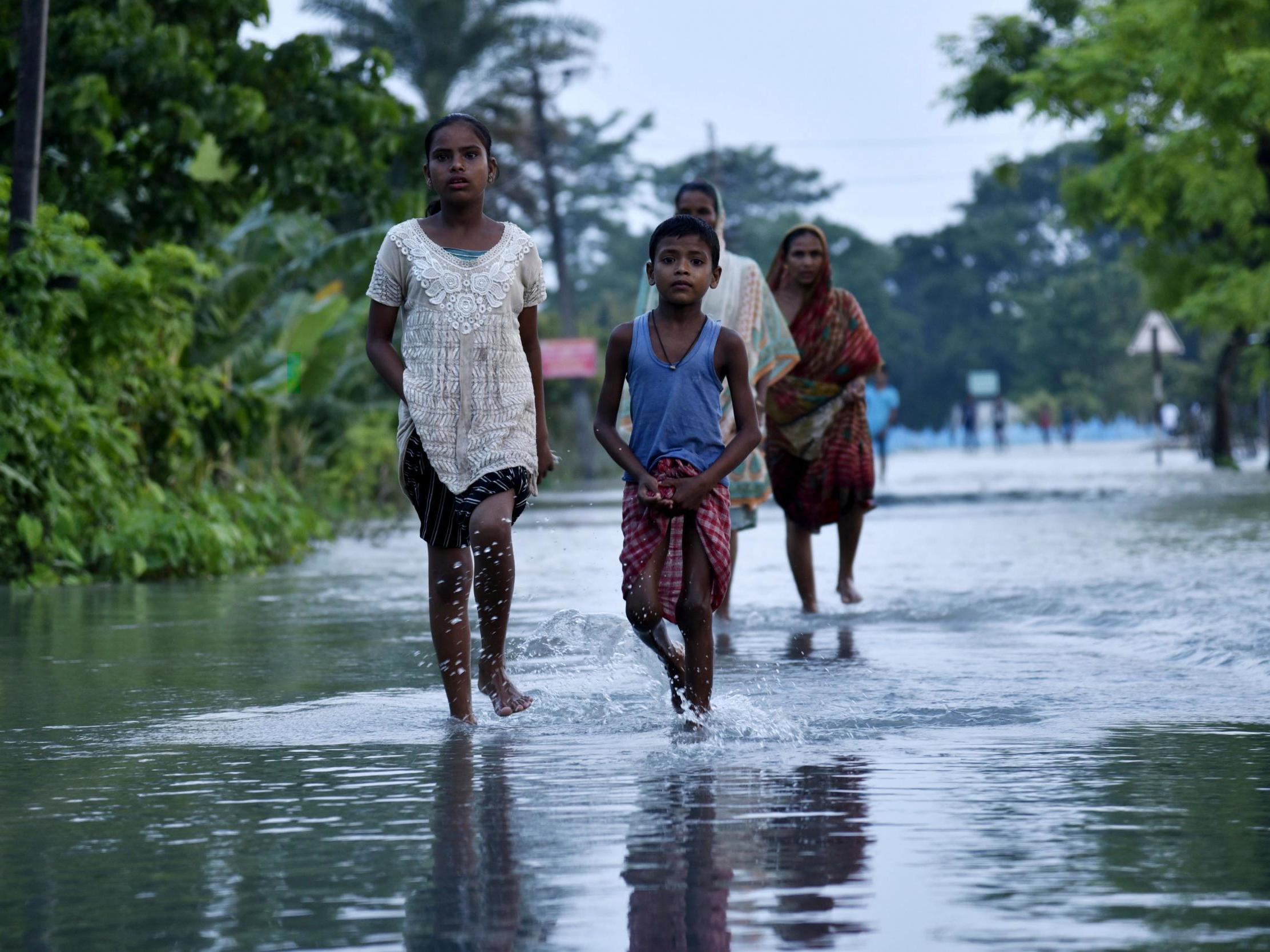Climate disasters have forced more than 20 million people a year to flee homes in decade, study finds
‘Eighty per cent of those displaced live in Asia, with women more affected by floods and storms than men’

Your support helps us to tell the story
From reproductive rights to climate change to Big Tech, The Independent is on the ground when the story is developing. Whether it's investigating the financials of Elon Musk's pro-Trump PAC or producing our latest documentary, 'The A Word', which shines a light on the American women fighting for reproductive rights, we know how important it is to parse out the facts from the messaging.
At such a critical moment in US history, we need reporters on the ground. Your donation allows us to keep sending journalists to speak to both sides of the story.
The Independent is trusted by Americans across the entire political spectrum. And unlike many other quality news outlets, we choose not to lock Americans out of our reporting and analysis with paywalls. We believe quality journalism should be available to everyone, paid for by those who can afford it.
Your support makes all the difference.Catastrophes such as floods, cyclones and fires caused by the climate crisis have driven millions of people from their homes every year for a decade, research by Oxfam has found.
Such disasters have forced more than 20 million people a year to flee – equivalent to one every two seconds – according to a new report by the charity.
Climate was the biggest cause of people being forced from home, bigger even than war, it says.
The study, which looked at how people were made refugees inside their home countries by climate disasters between 2008 and last year, reveals the reported number of weather emergencies over the past decade increased five-fold.
“Climate-fuelled disasters were the number one driver of internal displacement over the last decade – forcing an estimated 20 million people a year from their homes,” the report says.
Millions more have been driven away by drought, rising sea levels and other “slow-onset” climate-fuelled disasters, while more still are forced to emigrate.
“While no one is immune, it is overwhelmingly poor countries that are most at risk,” it warns. “Eighty per cent of those displaced in the last decade live in Asia – home to over a third of the world’s poorest people.”
Women are more affected by floods and storms than men, as in many parts of the world they do not learn to swim or are not able leave the house unaccompanied.
“Women are often among the last to leave home when more extreme or erratic weather makes it harder for families to put food on the table, staying behind to look after children and elderly or sick relatives, while male family members leave to search for an income elsewhere,” the study found.
Small island developing states such as Cuba and Tuvalu make up seven of the 10 countries that face the highest risk of internal displacement from extreme weather, and people there are 150 times more likely to be displaced by such disasters than those in Europe.
“And countries from Somalia to Guatemala are seeing large numbers of people displaced by both conflict and the climate crisis,” the study says.
Its figures show that the number of climate-related disasters each year forcing citizens to flee nearly tripled between 2016 and last year, from 527 to 1,518.
The report, entitled Forced from Home, is based on data from the Internal Displacement Monitoring Centre, and the issue is among topics due be discussed at the UN climate summit in Madrid this week.
Oxfam condemns the “little progress” made by the international community towards providing new funds to help poor countries recover from loss and damage resulting from the climate emergency.
Join our commenting forum
Join thought-provoking conversations, follow other Independent readers and see their replies
Comments